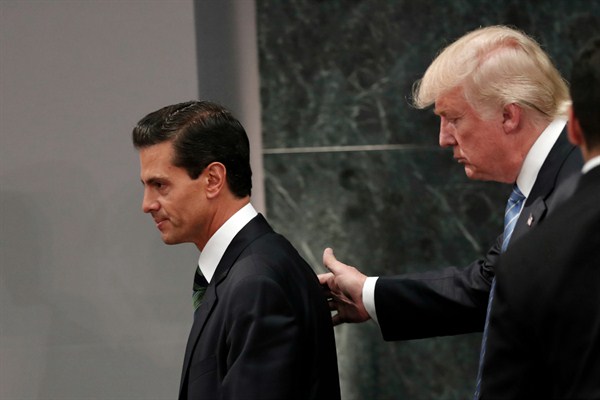MEXICO CITY — The lengthy and tumultuous prelude to talks between the United States, Mexico and Canada over the North American Free Trade Agreement has in many ways epitomized the chaos and contradictions of Donald Trump’s presidency. Trump has demonized the 23-year-old pact as the “worst trade deal, maybe ever,” but officials from his administration have hailed its potential to create a “regional powerhouse” through further economic integration. The confusion notwithstanding, Trump has forced policymakers to reflect on an agreement that is vital to the interests of all three NAFTA members. But he has also forced them to consider the intricacies of the global marketplace as a whole.
On May 18, the White House triggered a 90-day period of consultation with Congress ahead of formal trilateral talks set to begin in August. Mexico, which has received the brunt of Trump’s criticisms of NAFTA, expressed surprising confidence that the deal could not only be saved but strengthened. In many ways, the Trump administration’s delay in triggering negotiations has only given the Mexican government and the country’s business leaders time to build a stronger case in favor of an agreement that, however controversial, may not have yet realized its full potential.
“Instead of reversing decades of economic integration, the way forward is to deepen [the relationship] in areas that are still to be exploited and through which we could obtain an even more profound integration,” the governor of Mexico’s Central Bank, Agustin Carstens, said in an impassioned defense of NAFTA last month.

